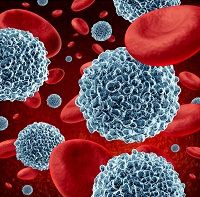Article
Signal Pathway Attacks Colorectal Cancer Cells
Author(s):
The stimulator of interferon genes (STING) signaling pathway in colorectal cancer patients could play an important role in making the immune system aware of the abnormality, according to findings published in the journal Cell Reports.

The stimulator of interferon genes (STING) signaling pathway in colorectal cancer patients could play an important role in making the immune system aware of the abnormality, according to findings published in the journal Cell Reports.
Research from the University of Miami Miller School of Medicine previously showed in 2008 that the STING molecule is able to recognize virus and bacterial infections and initiates patients’ defense and immune responses. In this study, the team demonstrates their belief in STING to suppress colorectal cancer.
“Since 2008, we’ve known that STING is crucial for antiviral and antibacterial responses,” STING discoverer Glen N. Barber, PhD, explained in a press release. “But until now, little had been known about its function in human tumors. In this study we show, for the first time, that STING signaling is repressed in colorectal carcinoma and other cancers, an event which may enable transformed cells to evade the immune system.”
Without STING signalizing, the body was unable to recognize cells whose DNA was damaged, the researchers found in disease models of colorectal cancer. The investigators explained that specific cytokines that relieve tissue repair and the antitumor preparations of the immune system were not adequately properly initiating a significant immune response to destroy the colorectal cancer.
“We were able to show that impaired STING responses may enable damaged cells to elude the immune system,” Barber said. “And if the body doesn't recognize and attack cancer cells, they will multiply and, ultimately, spread to other parts of the body.”
The study authors explained that STING should be evaluated as a prognostic marker for colorectal cancer treatment and/ or other cancers. They highlighted that STING signaling pathways attacked oncolytic viruses being used as traditional cancer therapies.




